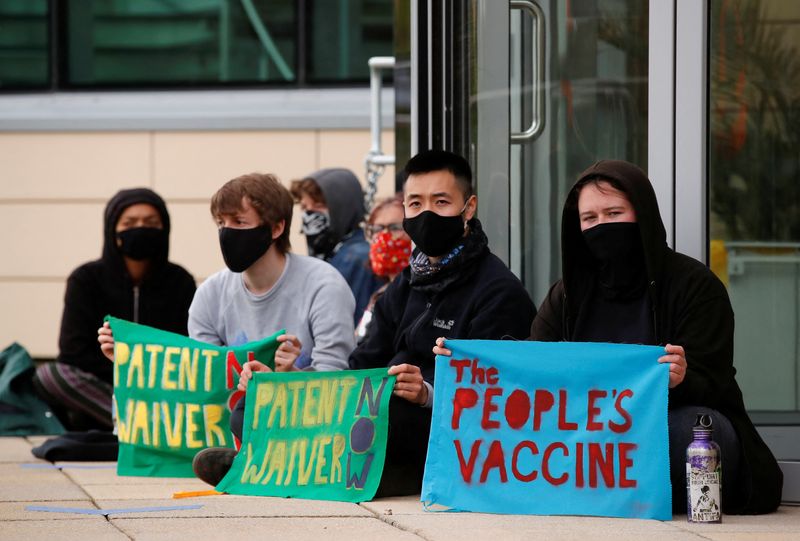By Natalie Grover
LONDON (Reuters) - An alliance of companies has pledged to ensure equitable access to vaccines and treatments for pandemics, as the friction around intellectual property rights for COVID-19 interventions between the pharmaceutical industry and developing nations endures.
At the heart of the plan is a commitment to set aside part of the production of vaccines and treatments upfront for vulnerable populations in low-income countries when the next pandemic arises, given how fragmented access to COVID tools has left many populations unprotected.
In order to do better next time - and without knowing which companies will develop the first drugs and vaccines for the next pandemic - having the industry collectively make this commitment is potentially transformative, Thomas Cueni, head of global pharmaceutical industry group IFPMA, told Reuters.
The pledge, called the Berlin Declaration, was made on Tuesday by IFPMA members that include many of the companies involved in developing COVID interventions, such as AstraZeneca (NASDAQ:AZN), GSK, Moderna (NASDAQ:MRNA) and Pfizer (NYSE:PFE) and Merck.
The declaration is not legally binding.
However, if a company that signed on reneges on its vow, it would face grave consequences in the court of public opinion, said Cueni.
IFPMA members have unanimously agreed to ensure that future authorised pandemic interventions will be made available and affordable in countries of all income levels, using a combination of approaches including donations, not-for-profit supply, voluntary licences or tiered pricing.
"We have to humbly admit even if the industry does that, it needs others to play along," said Cueni, underscoring the need for governments and policymakers to make sure the deployment of interventions is not thwarted by export bans.
Anna Marriott, policy lead for the People's Vaccine Alliance and health policy manager at Oxfam, said it was hard to take advice from the pharmaceutical industry given many companies have repeatedly demonstrated over the pandemic that they will pursue profit over equitable supply.
"I just don't think we can believe a word that they propose," she said.
PATENT WAR
The Berlin declaration also asserts that the industry's intellectual property (IP) rights should be preserved.
Developed nations with major pharmaceutical producers, and groups like IFPMA, argue that diluting these protections risks undermining the industry's ability to respond to health crises.
It discourages research and could potentially unravel broader patents for interventions used to combat other conditions, given many COVID tests and drugs are also used to detect and treat other infectious diseases, said Cueni.

But proponents of such waivers, like India, South Africa and developing countries which have run a protracted campaign seeking IP waivers, suggest the move could overcome legal barriers preventing them from producing their own COVID vaccines and treatments.
Last month, a provisional deal limited to a partial waiver of IP rights for vaccines was adopted, but a new battle may be looming at the World Trade Organization over extending the waiver to treatments and tests.